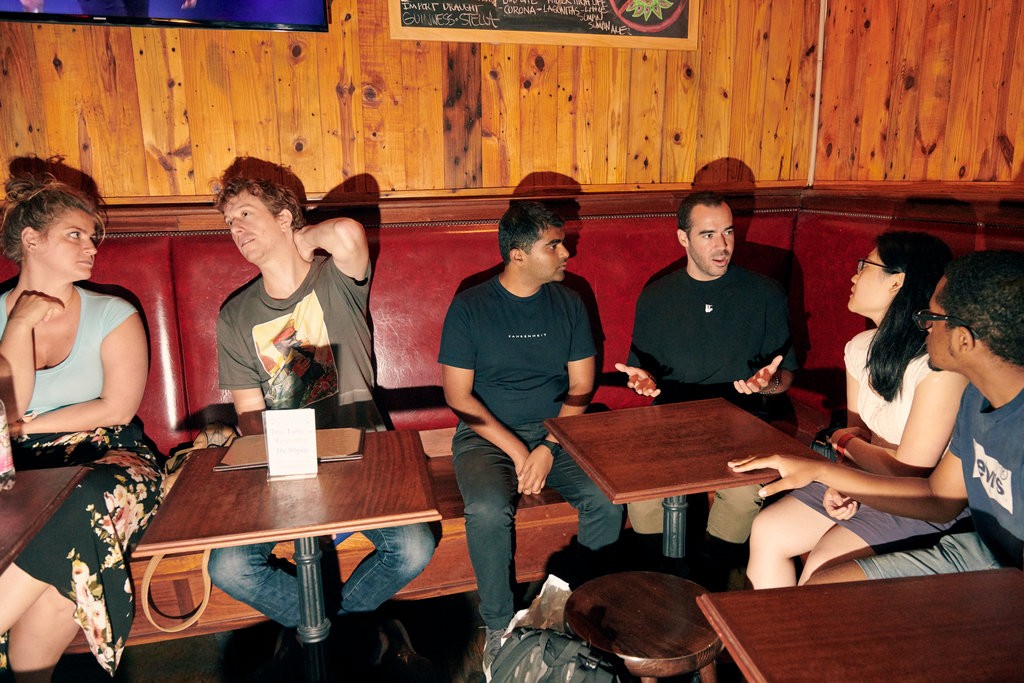It’s easier than you think!
Many people I have known don’t ask lots of questions in social conversations. Its as if they don’t see the value or potential in attempting to learn something of their conversational partner beyond small time banter. I wonder if they are just self centered, and not really curious about anything or anyone. Personally, I go by the following mantras. 1) Be curious, or be dead; 2) Ask questions, or learn nothing.
By Tim Herrera
For many of us, meeting new people can be an anxiety-inducing affair.
Am I talking too much? Was my handshake too weak? Did I make too much eye contact? Too little? Am I boring? Are they boring, but they’re boring because I’m boring?
It can be a mess! All of our worst social paranoias contained in a single interaction.
But there’s an easy way to get around this, simultaneously coming off as more likable while working to build a deeper, more genuine connection with someone: Ask questions.
A study published last year in the Journal of Personality and Social Psychology analyzed getting-to-know-you conversations between platonic conversation partners, along with face-to-face speed-dating conversations, and found that in both settings “people who ask more questions, particularly follow-up questions, are better liked by their conversation partners.” (It even led to an increase in second dates among the speed-daters.)
Those follow-up questions, the study found, are especially helpful to increase how much we are liked because they show that we are listening sincerely and trying to show we care.
Imagine that! Being a genuine, sincere conversation partner makes people like you more. What a world.
(And if you’re looking to brush up on your conversation skills, here’s a good place to start: 3 Tips to Have Better Conversations.)
Even more good news: Although people generally tend to reflect on an initial conversation with someone as a negative experience — like ruminating on those “Did I make enough eye contact?” type of questions — it’s thankfully all in our heads, according to a new study published in Psychological Science.
A team of researchers from Yale, Harvard, Cornell and the University of Essex found that after initial interactions “people systematically underestimated how much their conversation partners liked them and enjoyed their company.”
This is called the liking gap, or the difference between how much we think people like us and how much people actually like us.
[Like what you’re reading? Sign up here for the Smarter Living newsletter to get stories like this (and much more!) delivered straight to your inbox every Monday morning.]
The study looked at how relationships evolved between new acquaintances and found that the anxiety and self-doubt of meeting someone new can pervade in any type of relationship, sometimes lasting for months.
“People are often biased by their own internal monologues, which, after social interactions, can be remarkably self-critical and negative,” the authors wrote. They added that people “tend to compare themselves unfavorably with their ideal version of themselves,” torturing themselves with worst-case scenarios and obsessing about how to make things better — even though there’s nothing to make better because it’s all in our heads.
“People can be their own greatest critic, but what is hard for people to see is that others do not have this same perspective on their faults,” the authors wrote.
The lesson: Remember that it’s all in your head. Simply having the knowledge that any self-doubt about an interaction with a new person is unwarranted is a powerful shift in the way we approach new connections. If you feel like someone dislikes you based on a single meeting, odds are that’s just not the case (and they’re probably thinking the same thing).
Just keep asking those questions, listening to the answers and being as genuine as possible. Yes, it’s that easy.

